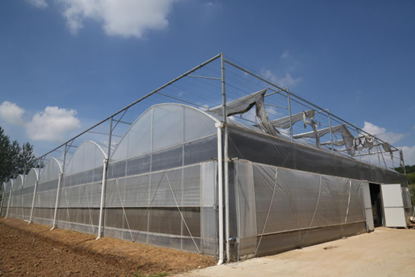Town in Shandong engineers its agricultural transformation
The town of Chucun – located in the Weihai Torch High-Tech Industry Development Zone, in East China's Shandong province – has been proactive in encouraging and guiding local agricultural businesses to cultivate rare edible mushrooms over the past few years.
The municipality has done this by rolling out effective policies and by deploying financial support.
Thanks to technological innovation, a rare species of valuable edible mushroom called Bai-Ling mushrooms can now be cultivated using a soil-free technique, replacing the traditional soil-covered method.
The new approach is said to allow for automated controls, high and stable yields and low costs, which improves the entire supply chain of the Bai-Ling mushroom industry.

Large greenhouses are in use to better cultivate the rare mushrooms. [Photo by Sun Dejun for chinadaily.com.cn]
What's more, using industrialized greenhouse cultivation, local agricultural enterprises have reduced the growth period of wasabi – a green plant often used as a condiment in sushi dishes – from three years to one year. This has led to an estimated three times increase in economic benefits.
Farmers can also grow Bai-Ling mushrooms in the same greenhouses to reduce costs, because the two crops share a similar growth environment.
The journey forwards by Chucun town is said to be a model example of rural vitalization. Moving forwards, plans are for it to cultivate 20 million wasabi seedlings and 20 mu (1.33 hectares) of Bai-Ling mushrooms in more greenhouses by the end of October, to increase the incomes of local farmers. (Edited by Zhou Yunlai)








